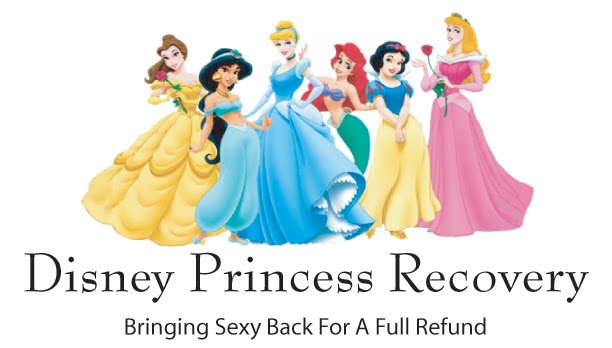Check.
Step Two: Came to believe that a Power greater than ourselves could restore us to sanity.
Although in addiction recovery this step refers to God, we found that in our house, it was Grandparents.
Loving, doting Grandparents, the other Big G.
Grandparents who simply want to wrap their grandkid up in hugs and butterscotch cookies. And on one side, Disney Princess films. And on the other side, Disney Princess dolls. It was all so well-intentioned. And it allowed me to grocery shop by myself. And to get to work on time without paying a sitter.
In the school of personal responsibility, we parents have only ourselves to blame for each and every mistake we make. Mine, here, was not speaking up loudly enough. I expressed concern. I shared my opinion. It was a gut instinct, but sometimes, I think, when our parents hear us express a gut instinct, it might remind them of the time we were 7 and reaaaaallllly waaanted ice cream. That kind of gut instinct.
When I returned with a court order forbidding any further contact with Disney Princesses (written by me and enshrined in heart stickers), I also brought some research. And you know what? The research did the trick.
This book. It's part of our recovery program. And I think it should be given at all baby showers. "Here's some pink booties, and a book about sexualized childhood. Good luck."
I got this copy at the library, thus the 257 post-it notes instead of double-underlining and penciling "Exactly!" in the margins. The authors are Diane E. Levin and Jean Kilbourne, and here's the book's website:
sosexysosoon.com
A snippet:
I wish I'd gotten a copy at my baby shower. It would have been more useful than that book about sleep schedules that never seemed to work.


What an excellent point! As an expectant mother, I find myself thinking about these issues on my long commute. I see little girls all over the place, wearing lipgloss and "little girl" high heels, and it just makes me sick! Thank you for writing this blog and taking a stand!!!
ReplyDeleteI'm adding this book to my wish list. This year I have had many many students addressing the impact of media on young girls in their research papers, and this book by Kilbourne and Levin sounds wonderful. Have you seen other works by Kilbourne? You may want to check out http://www.mediaed.org/ if you don't already have it bookmarked on your computer.
ReplyDelete